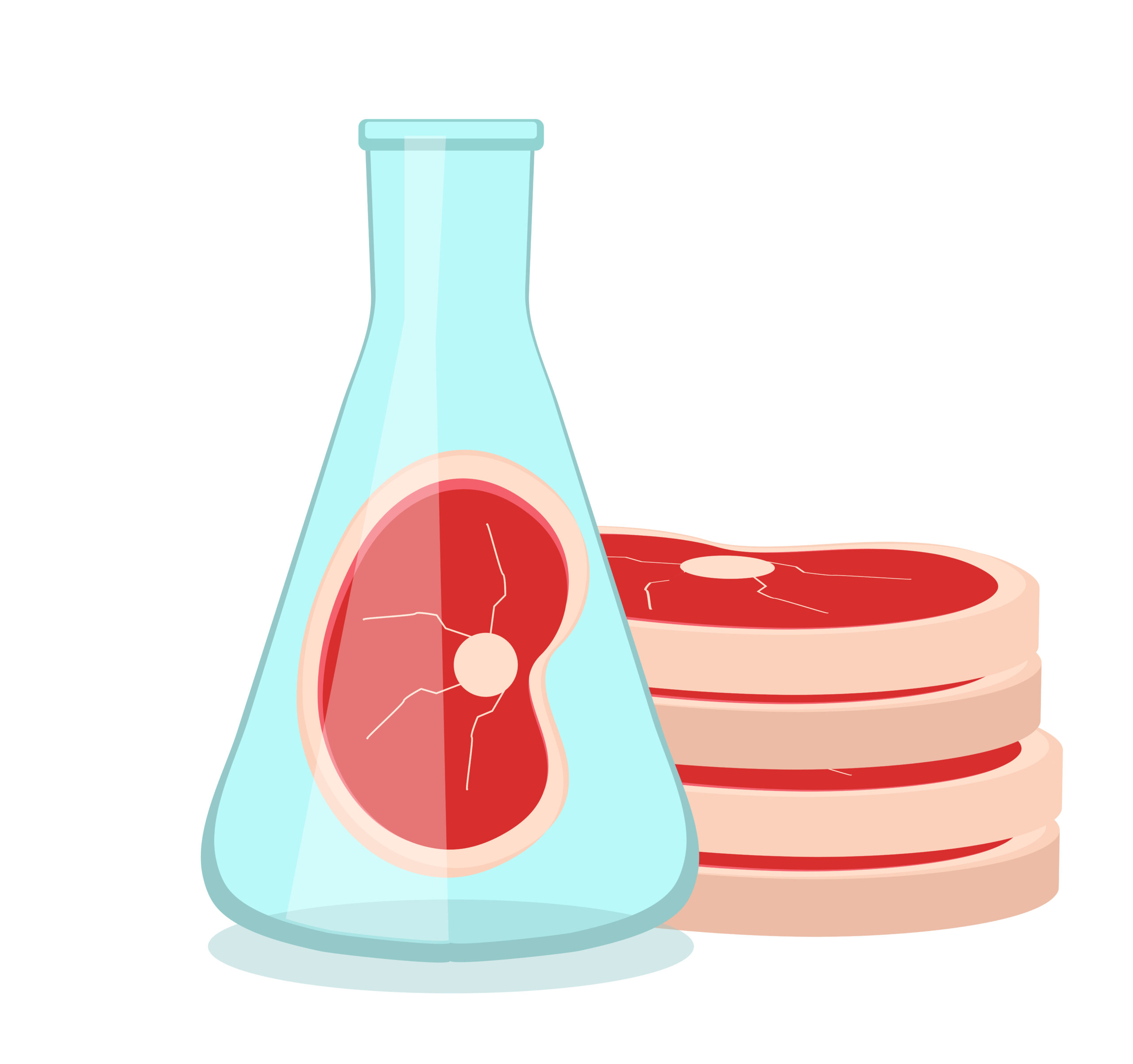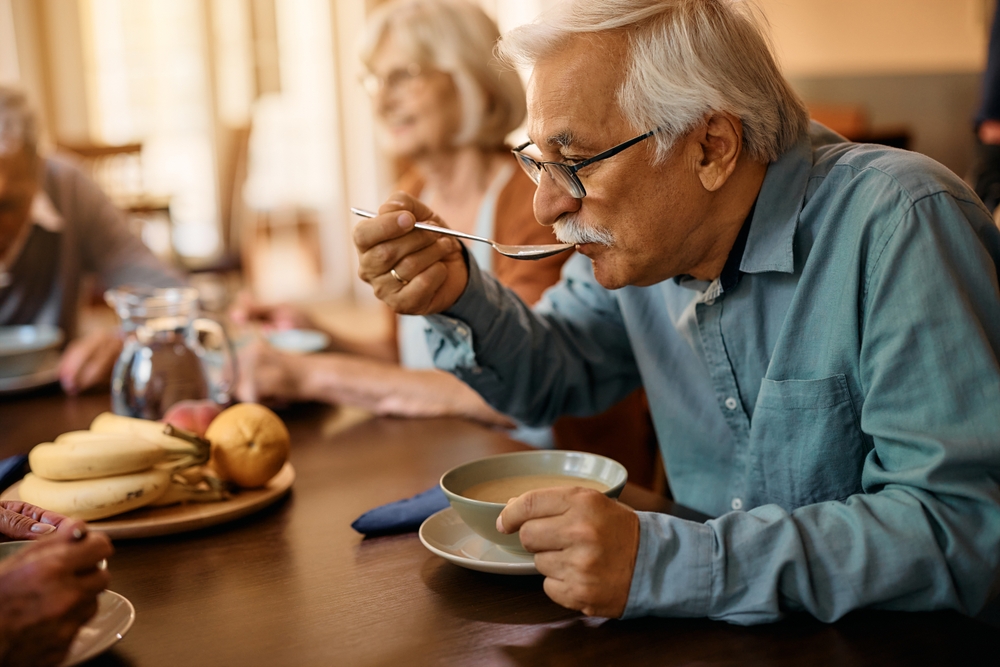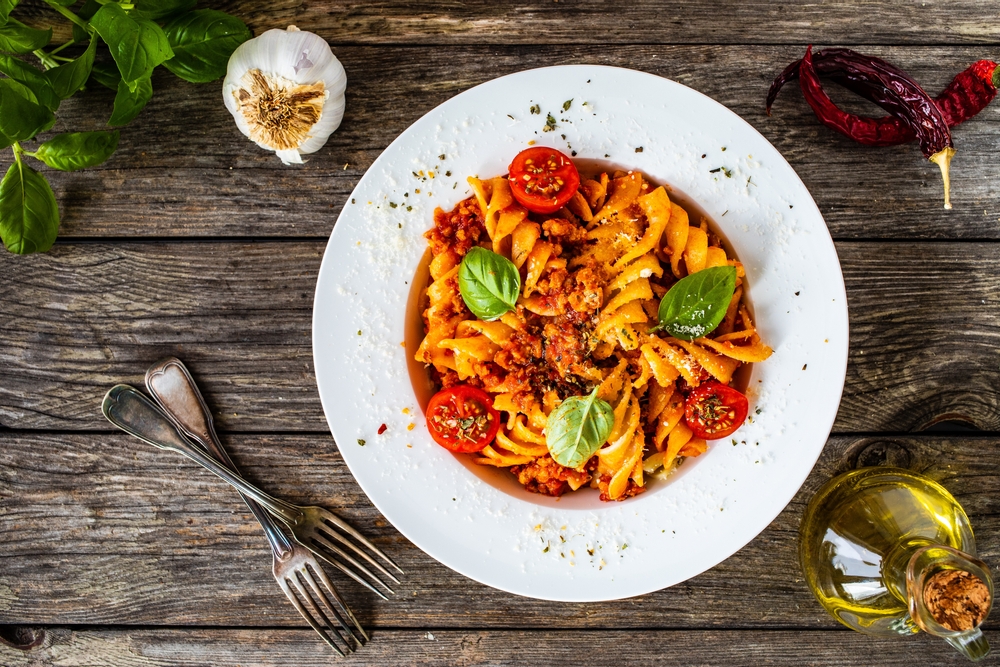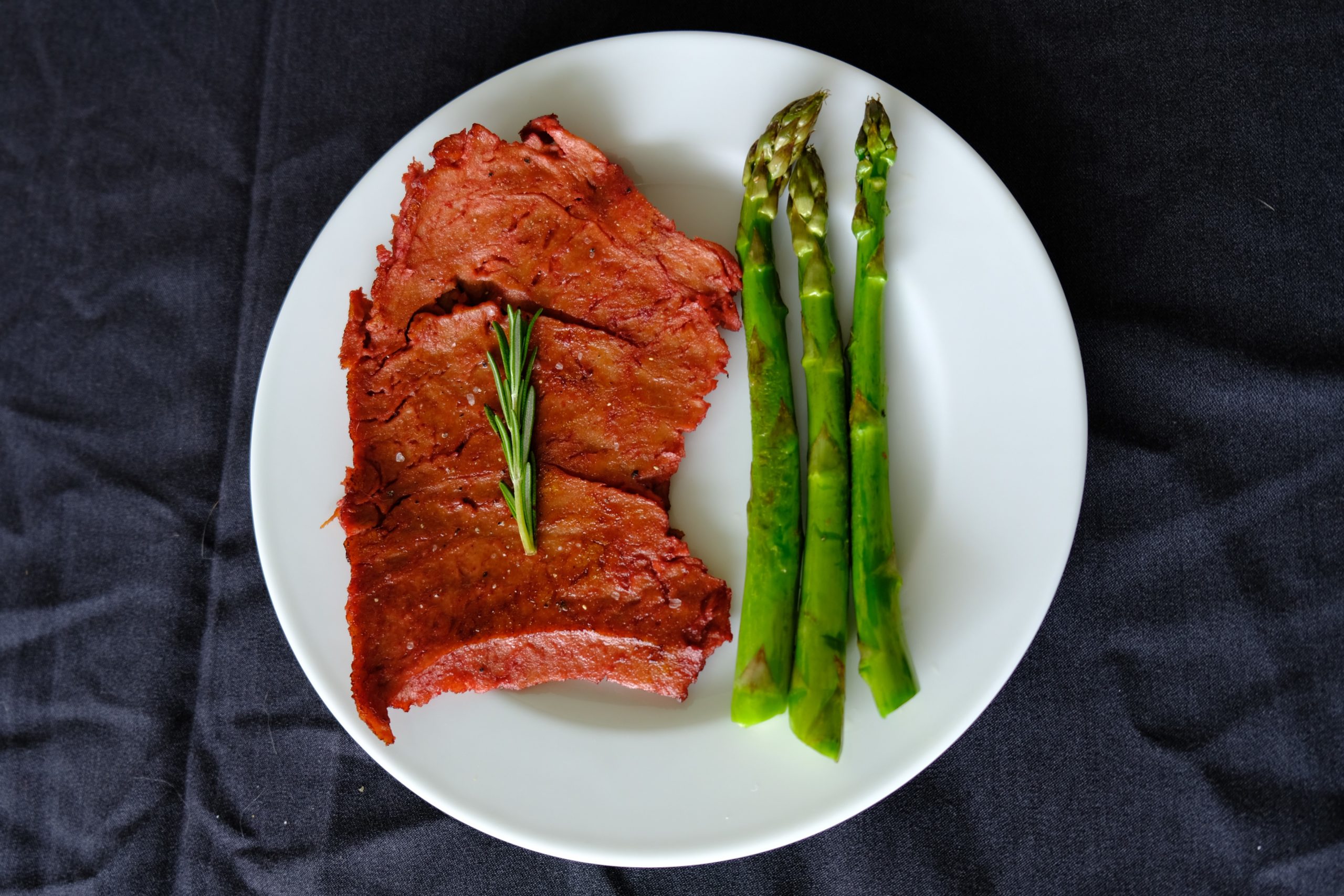MSc student Panagiotis Vlachogiannis wondered about this question. So he and a few like-minded students kept knocking on their lecturers’ doors until someone said, ‘Yes, let’s do it.’
When Panagiotis Vlachogiannis (25) came to Wageningen for his MSc in Human and Animal Physiology, he felt something was missing: a course about the protein transition. ‘I am very interested in the shift away from traditional animal protein towards alternative protein sources. WUR is a strong player in the protein transition, but while many relevant courses scratch the surface and discuss parts of it, there was no specialized course that gave a good overview of this field. As I want to have a career in this area, I felt that was a gap that needed filling.’
Vlachogiannis started looking for people who shared his view. ‘I could not find a group or association dedicated to this subject, so in the summer of 2020 I posted a message on Wageningen Student Plaza (a Facebook group, ed.) and got responses from three like-minded students. Together we started WAPP: the Wageningen Alternative Protein Project. We did this with the support of Stacy Pyett, Proteins for Life programme manager at WUR and the Good Food Institute (an international non-profit organization working on the protein transition, ed.) There are five of us now, all from different countries and backgrounds, but with a common interest in making a positive difference to how we feed the world.’

Barbecues and tastings
Once the students had founded WAPP, they started to think about exactly what they were aiming at. Vlachogiannis: ‘Do we just want to get together to discuss the latest developments in the sector? Should we focus on fun activities, like barbecues and tastings of alternatives to meat and dairy products? We decided we have three aims. One: to help WUR to create a course on the protein transition. Two: to stimulate open access research and draw attention to alternative protein projects in Wageningen. And three: to bring people together in a fun, inclusive community of students and researchers for friendly talks, plant-based tastings, discussions and much more.
Hopefully the course will be taught next academic year
‘Alternative protein refers to all animal-free protein to replace meat and dairy produce,’ says Vlachogiannis. ‘It should have the same or a similar nutritional value without being cruel to animals, and of course it also has to taste good. Some people working on the protein transition focus on plant-based solutions, some on fermentation processes, and I focus on cell-based or cultured meat. All these topics have a place in WAPP and all of them and more should be included in the course that we want to help create.’
Knocking on doors
So how do students develop a course? ‘You don’t,’ says Vlachogiannis. ‘We are students, not teachers. But we felt strongly about this subject so we explored the possibilities. We started to knock on our teachers’ doors to tell them that there is this gap in WUR’s curriculum when it comes to the protein transition and that we’d like to change that. Some teachers were interested, some were not. Then we talked to Guido Sala in the Food Science and Agrotechnology department. He said “Yeah, let’s do it!” So now the course is coming, hopefully as early as next academic year.’
We volunteer as student assistants to help the teachers
‘I think it’s great that students have come up with an initiative to develop a new course,’ says Sala. ‘Yes, we do intend to teach this course next year, but we are still in the early stages at the moment: we’ve got a draft framework for the course. The subject is already taught in several separate bits, actually: In Food Structuring, they look at the structuring of plant-based proteins; in Plant Sciences, they look at particular crops for the protein transition; there are courses about insects as food, and so on. To run one overarching course on the protein transition, we need several different teachers. We haven’t found them all yet. But in theory we could design this course quite quickly, and if that goes well, we could teach it next year.’
Sociologists
Sala wants to keep the content of the introductory course on the protein transition broad. ‘So deal with innovative technologies for producing meat and dairy substitutes, but also look at sociological aspects, for instance: which initiatives make sense? How can alternative proteins start playing a bigger role in our diet? Ideally, I would like to get sociologists or people in the Leeuwenborch who are working on innovations and transitions involved in the course.’ ‘We volunteer as student assistants,’ says Vlachogiannis. ‘Meaning that we will be there for the teachers to make their lives easier in the process of creating this course.’ As Vlachogiannis is currently in the second year of his Master’s programme, chances are that he will graduate before the course is taught at WUR. ‘First of all, this course is not about me. We started WAPP together and the project will continue after I graduate. The primary purpose of WAPP is to provide students and researchers with a community in which the protein transition is central. Of course, it will be a bummer if I can’t be in the classroom when the course is launched. Maybe I can arrange something with the teachers so that I can be present to see our project bear fruit.’

 Illustration: Shutterstock
Illustration: Shutterstock 

